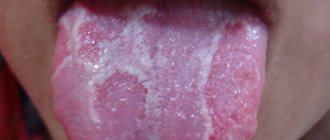Modern man has a big problem - we don’t know how to eat. Adults do not have enough time to eat normally at a calm pace, and in most cases children are not even taught to chew. Many parents specifically feed their babies soft or pureed food. Everyone is afraid that the child will be capricious or choke. Let's figure it out - what is the mistake of this approach and why is chewing so important?
Typically, people literally swallow their food and quickly wash it down with a hot or sweet liquid, and that's the end of the meal. Among the consequences: digestive problems and regular overeating, since the body requires much more energy to digest poorly chewed food.
The process of digesting food begins in the oral cavity. Saliva is secreted in the mouth, which contains enzymes and breaks down easily soluble substances and softens denser ones. The teeth and tongue grind and crush food. By the time the food gets into the stomach, it will be much easier to digest and assimilate it than if you simply swallow the product (otherwise it will ferment, which will negatively affect the functioning of the gastrointestinal tract).
As shown by Chinese and American studies published in The American Journal of Clinical Nutrition, experiment participants consumed 11.9% fewer calories, regardless of their size, their bodies became full faster, they felt less hungry, and they even managed to lose a little weight.
Not united by food
Chewing not only ensures a normal digestive process, but also has a number of other benefits. If you start teaching your baby to chew in time (from 6-7 months), his bite will form. Moreover, as shown by a Belgian study published in the journal J Voice, chewing promotes proper speech development. When a child chews, bites or licks, his lips, tongue, cheeks and jaws work. This develops the same motor skills as when speaking. In practice, it turns out that the process of eating food is the most enjoyable type of articulatory gymnastics.
Pediatrician of the highest category Yulia Viktorovna Andronnikova told us about other functions of chewing:
- Chewing slowly allows you to feel full with less food, as the signal has time to reach the centers regulating hunger and appetite.
- Chewing movements activate areas of the cerebral cortex that are responsible for cognitive abilities. In children, chewing stimulates development. If this process is disrupted, dementia can progress in old age.
- Chewing movements form the facial skeleton, which is very important for proper breathing and blood supply to the central nervous system.
- Not a single cosmetic procedure will help keep you in good shape and improve blood supply to the facial muscles as well as proper (slow) chewing.
Why does a baby chew and suck its tongue?
You should not panic if you notice this, but you should figure out the reasons and eliminate the “bad habit” in your child yourself or seek the help of a doctor. There are many factors in the development of this phenomenon, and in this article we will try to identify possible sources of the problem and find ways to solve them.
Possible diseases
Sometimes the cause of chewing and tongue sucking can be various pathologies:
- The so-called thrush (an infectious fungal disease that affects the baby’s oral mucosa) is a common problem that parents face. Due to the whitish coating on the cheeks, gums, and especially the tongue, the child can stick it out, chew and suck. In addition to dense deposits, the child may feel pain and discomfort. To identify and treat the disease, you need to consult a pediatrician.
- If a child chews his tongue, endocrine diseases may be the cause. Hypothyroidism - insufficient production of thyroid hormones - can also manifest itself in the muscular organ. It swells and becomes larger than normal. The child tries to “remove” it from his mouth, that is, he walks with his tongue sticking out. It is clear that discomfort can also result from chewing the tongue. Endocrinologists identify this pathology and prescribe treatment.
- Pathologies of the jaw bones and malocclusion are phenomena that cause children of several months of age to chew and suck their tongue. Due to an excessively small lower jaw and irregularly shaped dental arch, children can feel the “size” of the tongue and, as a result, pay attention to it and chew it.
- This can also apply to children during the teething period - when the gums become inflamed, itchy and painful. To reduce discomfort, the child tries to compensate for the pain by chewing his tongue. During teething, you need to visit a pediatric dentist, and for children with existing teeth and pathology of the bite or jaws, an orthodontist.
- The reason for chewing and sticking out the tongue during sleep is increased intracranial pressure. Children with such problems should be urgently shown to a pediatrician.
When and how to teach a child
To prepare your child for chewing, you can make faces, grimace, and perform chewing movements. When your baby “speaks baby,” answer him. The child will repeat after you and actively move his jaws, tongue and lips.
The sooner parents introduce their child to foods of different hardness, the more willing he will be to try new foods. As soon as the child began to make chewing movements, slurping and smacking, he developed an interest in food, and especially when the first teeth appear, you can give pieces of food (soft boiled vegetables, for example, carrots). The optimal age for the first introduction to food is 6-7 months. Children are old enough to accept new food, but still too young to start being capricious and indignant at the table.
Psychological reasons
- The baby may lack parental attention, and he tries so hard to amuse and calm himself. The care and love of parents helps in this case. We need to show more attention to the baby, keep him busy with exciting games, give him more opportunities to communicate and play with peers. You should constantly keep him occupied with something so that he doesn’t mope and is constantly doing something. This way he won’t be distracted by bad habits at all.
- The baby can express anxiety, excitement, concern in this way and tries to compensate for them with something. He clearly lacks affection and pleasant impressions. It is necessary to rid him of stressful situations so that they do not lead to prolonged depression. Any means that can create a positive mood will do for this. You shouldn’t constantly scold him; on the contrary, you need to morally encourage him. Over time, the urge to suck tongue will decrease. But this will not happen immediately.
Underwater rocks
Up to six months, children have an active expulsion reflex - a natural defense against suffocation. Therefore, at the beginning of “communication” with semi-solid food, the child may choke and spit out the food. There is no need to be scared and abruptly return to purees and ground products! Chewing is a skill and needs to be learned.
If you've introduced semi-solid foods a long time ago and your baby is still choking, give him time. Place food in front of your baby and watch - let him try to put food in his mouth with his hand on his own. Children should be praised and not scolded at the table! Otherwise, food may begin to be associated with violence and lead to an eating disorder.
Links:
- The American Journal of Clinical Nutrition, Volume 94, Issue 3, September 2011, Pages 709–716, https://doi.org/10.3945/ajcn.111.015164
- The American Journal of Clinical Nutrition. Mastication of almonds: effects of lipid bioaccessibility, appetite, andhormone response. Bridget A Cassady. https://ucce.ucdavis.edu/files/datastore/608-11.pdf
- Cell. Nicolas Dutzan. Published: January 10, 2021 DOI: https://doi.org/10.1016/j.immuni.2016.12.010
- Effectiveness of Chewing Technique on the Phonation of Female Speech-Language Pathology Students: A Pilot Study. Meerschman I DOI:10.1016/j.jvoice.2015.06.016
Pacifier to the rescue
At first, parents try to make their baby friends with a pacifier. The pacifier has a calming effect on the baby and satisfies the sucking instinct. Thanks to the rubber thing, the child falls asleep faster, has fun, does not put any unnecessary objects into his mouth, and does not cry after eating. For mothers, a pacifier is an excellent aid in caring for their baby. But many babies completely refuse the delights of this attribute. One child sucks his tongue, another prefers to keep a finger or a piece of sheet in his mouth.
When a baby sucks a finger, pacifier or other thing, parents are not particularly worried, since they can take the foreign object away from the child or stick a finger out of the mouth during sleep. But when a child sucks his tongue, mothers are lost and don’t know what to do: how to wean their child off the habit?
Useful tips
If mothers decide to fight the addiction, then before weaning their child from sucking tongue, they need to determine the reasons.
A few simple tips will help parents.
- Spend a lot of time with your baby. Don't be afraid to spoil him. Carry him in your arms, sing lullabies, caress and kiss him, talk to him softly.
- Take care of a calm atmosphere at home. Loud unexpected sounds and screams can cause fear and nervous breakdown in a baby.
- Pay attention to the child’s diet: does he receive sufficient nutrition and fluids? Many mothers tend to believe that when breastfeeding a baby does not need water - this is false, especially if the milk is full-fat. After eating, provide your baby with clean boiled water. Give him food from a spoon or bottle.
- Play with your older baby. Read books to him. Show rattles and clean rubber toys. Entertainment that is accessible to the age group will help you get distracted and not get hung up on bad habits.
- Don't neglect your pacifier. Don't force a pacifier on your baby, but don't shy away from it either. Most people spent the first years of their lives inseparably with a pacifier, but did not spoil their bite and have good teeth. Don't listen to superstitions, do what's best for your baby.
Sticking out tongue is the cause of the disease
Why should you worry? It happens that the reason that a newborn cannot keep his tongue in his mouth for a long time is a disease. Parents may notice their baby sticking out his tongue regularly throughout the day, and even at night while sleeping. In this case, if all non-medical reasons are rejected, you should immediately consult a doctor. After all, if the cause of such behavior in the baby is a disease, diagnosing it at an early stage will significantly facilitate treatment and avoid complications. Unusual behavior may be a symptom of the following diseases:
- Increased ICP – intracranial pressure can cause tongue sticking out. At the same time, the child tilts his head back. This disease can lead to a number of complications and delays in the development of the baby, both physical and mental. In this case, treatment is prescribed by a neurologist.
- Oral disease, most often thrush. The mother needs to carefully examine the child’s throat and mouth. Thrush will be indicated by a light-colored coating on the mucous membranes. It causes pain and discomfort, and the baby will constantly move his tongue in and out. For treatment, you should contact your pediatrician.
Associated symptoms
Many symptoms of various diseases can accompany tongue chewing. As mentioned above, these are endocrine disorders, infectious diseases, often teething or pathologies of the bite and development of the jaw bones.
In addition to all of the above, this habit can be accompanied by many inflammatory diseases of the oral cavity:
- glossitis - inflammation of the tongue,
- stomatitis - inflammation of the mucous membrane,
- gingivitis – inflammation of the gums.
These pathologies always cause discomfort in babies in the form of itching and pain, so they begin to drown it out by chewing their tongue. A vicious circle is created here - the child bites the tongue, thereby injuring it, which further aggravates the inflammatory process. That is why chewing the tongue itself contributes to the development of diseases.










